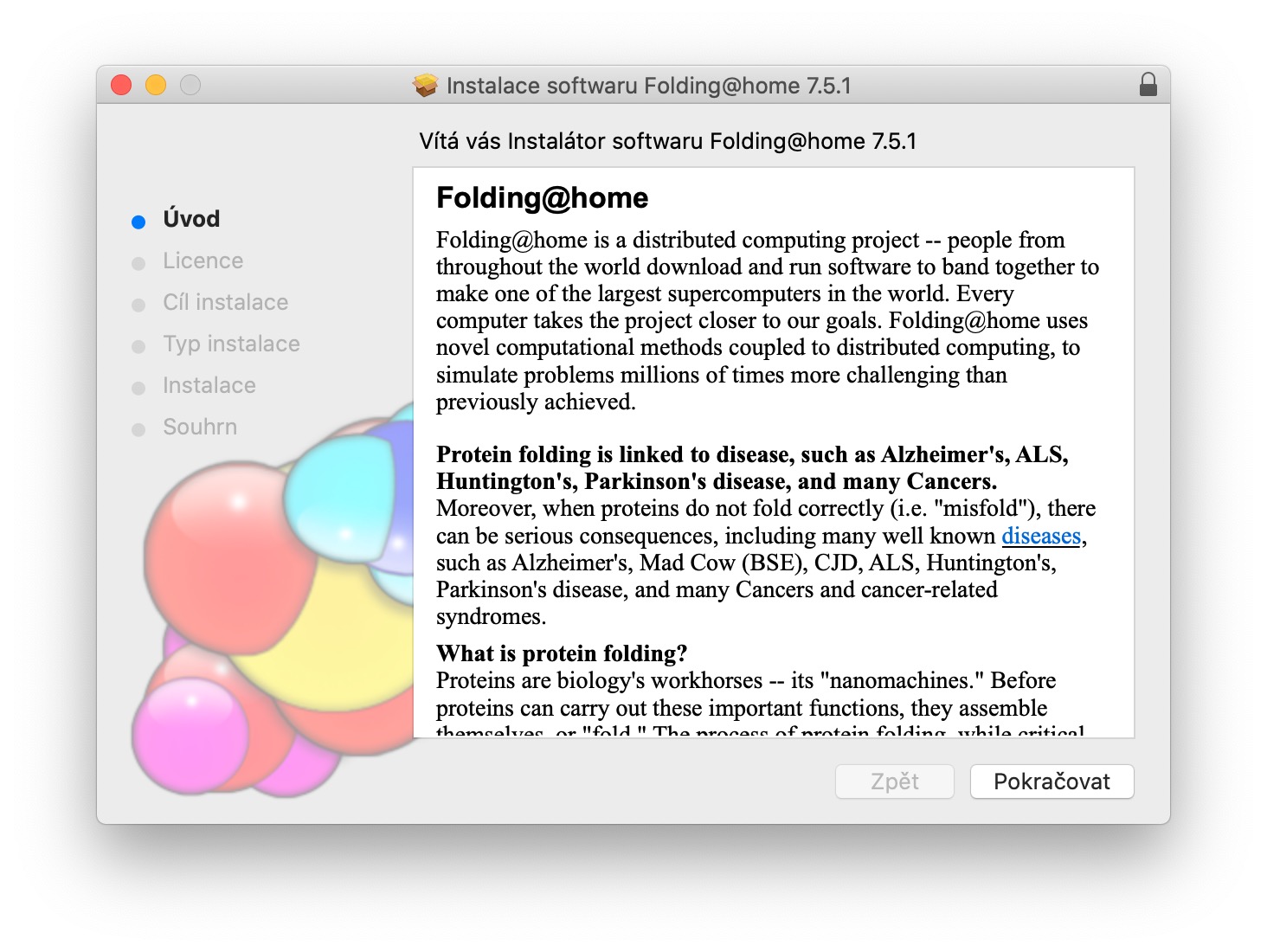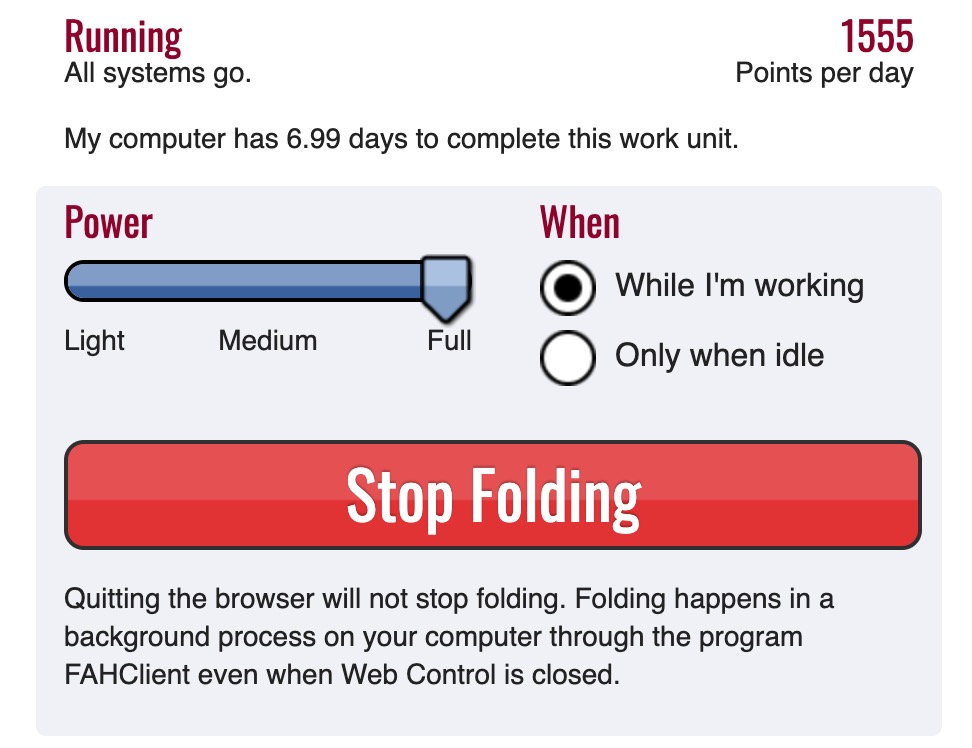If you would like to participate in any way in solving the current situation related to the ongoing epidemic of COVID-19, you have a chance. It won't cost you anything more than your Mac's unused processing power. This assistance takes place in the form of co-participation in the SETI@Home project, in the framework of which the aforementioned computer performance of volunteers around the world is used for data analysis. While in the past the SETI@Home program focused on space exploration in an effort to find signs of extraterrestrial intelligence. This survey will end in March as the university managing the SETI@Home project has managed to collect enough data.
SETI@Home is not the only project of this kind – for example, the Folding@Home (FAH) project also works on a similar basis, which is newly focused on helping to find a cure for COVID-19. In the past, the Folding@Home project focused, for example, on research into breast or kidney cancer, neurological diseases such as Alzheimer's, Parkinson's or Huntington's disease, but also infectious diseases such as dengue fever, Zika virus, hepatitis C or the Ebola virus. Now, COVID-19 has been added to this list.
The operators of the Folding@home project invite their website volunteers from all over the world to work together. "By downloading Folding@home, you can donate unused computing resources to the Folding@home consortium," the project organizers state in their call. They further explain on the website that by participating, volunteers will support the efforts of experts to accelerate research related to the development of an effective drug for COVID-19. "The data you help us generate will be quickly and openly shared as part of an open science collaboration between laboratories around the world, giving researchers new tools that could unlock new opportunities to develop life-saving drugs."
Owners of Macs with 64-bit architecture, an Intel Core 2 Duo processor or later and macOS 10.6 and later can participate in the Folding@Home project.
The Folding@home project is focused on disease research. It was launched in 2000 at Stanford University and is run by Professor Vijay Pande.


